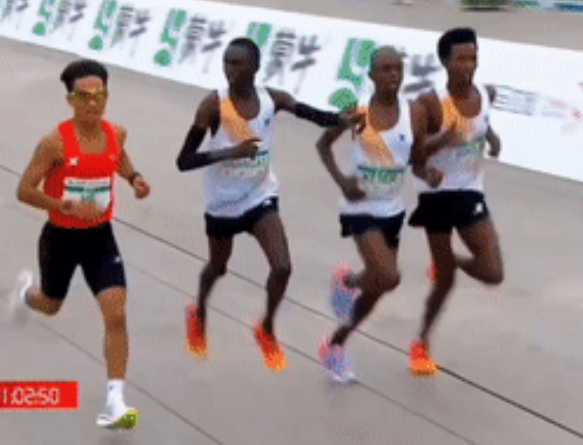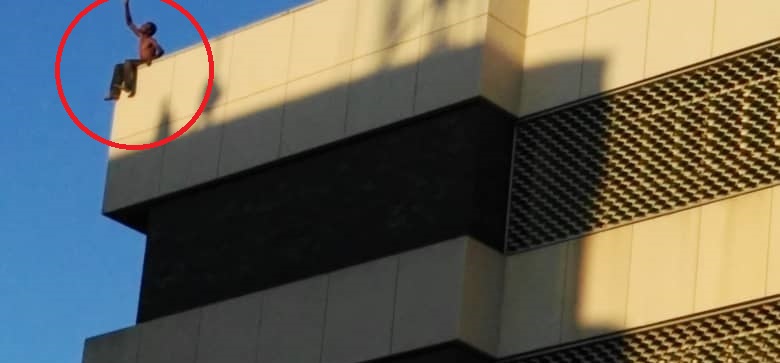Zimbabwe Constitutional Court to hear challenge on death penalty
Lovemore Lubinda
The Constitutional Court will this Wednesday (tomorrow) hear the challenge by Farai Lawrence Ndlovu & Wisdom Gochera versus the Minister of Justice Legal and Parliamentary Affairs, Emmerson Mnangagwa and the Attorney General Prince Machaya, on the constitutionality of the death penalty.
In the applicants’ founding Affidavit Ndlovu who is the first applicant is currently on death row and is incarcerated at Chikurubi Maximum Prison, his prison number is 662/ 14, while the second applicant Gochera is also on death row at the same prison, his number is 649/ 13. The applicants were convicted and sentenced for murder before the new constitution come into effect and are both awaiting execution.
The first applicant was convicted of murder by Justice Misheck Cheda in the High Court of Bulawayo on 24 May 2012, his automatic appeal under SC36/ 14 was thrown out of the Supreme Court on 8 May 2014.
The second applicant was convicted of murder, by Justice Benjamin Paradza on 27 July 2002, and his automatic appeal was also dismissed by the Chief Justice with the concurrence of the Deputy Chief Justice and Gawunza JA under judgement number SC33/ 05 on 6 September 2005.
The two applicants, represented by prominent lawyer Tendai Biti who is also People’s Democratic Party leader, are challenging that the new constitution of Zimbabwe provides them with the right to life under section 48 of the Constitution of Zimbabwe, therefore cannot be executed now.
In the court papers, the case which is cited as Ndlovu & Another V Minister of Justice & Another, the applicants made it clear that they are not contending that their convictions and sentencing were unconstitutional or otherwise unlawful when they were imposed. They however, contend that the conditions have changed since the new constitution entered into force in 2013.
They further contend that the old law in which they were convicted does not apply to them as it is not in conformity with the new constitution, and that there cannot be any execution of any prisoner or any death sentence in Zimbabwe until law envisaged under section 48 (2) of the constitution has been passed. The state however, argues that the law that there cannot be any execution in Zimbabwe is not there in the statutes.
The state (the respondent) through the Attorney General’s Office maintains that the applicants are misguided. In its heads of argument the respondent states that when the constitution comes into commencement the rights guaranteed in the constitution under chapter 4 being the declaration of rights under which the right to life is sanctioned, come into commencement on the publication day.
“The right to life guaranteed under s48 (1) of the constitution was therefore effective from the date of publication of the current constitution which was 22 May 2013. Nowhere is it stated in the text that the constitution shall have a retrospective effect,” argues the state.
The state’s argument is therefore that the applicants cannot argue that the provisions of the new constitution cover them as they were both convicted and sentenced before the publication date. In other words section 48 (1) of the constitution does not render unconstitutional or unlawful the imposition of the death penalty upon both applicants at the relevant times.
Human life is God given. No one has the right to take away another person’s life. Democracy and the right to human dignity does not being one sided and turning a blind eye the rights of others. In that regard the state further argue that applicants need not to lose sight that by committing murder they also violated an equally important right, the right to life.
“The applicants failed to respect the right to life and human dignity as they applied to other persons, and democracy in a open and democratic society based on human rights, dignity, equality, and freedom demands that they face the consequences of their actions.
“The new constitution cannot apply in retrospect in favour of the applicants, but clearly apply to persons who were convicted after the publication date as explicitly provided for under part II, section 3 (1) (b) of the sixth schedule,” added the state.
The new constitution provides in section 48 (2) (e) that such persons on death row to qualify to have their capital punishment commuted to life sentences need to apply to the President of the Republic of Zimbabwe.
According to the applicants’ papers, the constitutional court will therefore consider if the new Constitution saves and preserves the death penalty or, rather, whether those persons that have not been executed can be, executed before the law envisaged in Section 48 (2) has been passed. At the end of the day, the Court will have to consider whether or not, as argued by the State, the Constitution applies retrospectively in respect of convicted persons awaiting execution.














